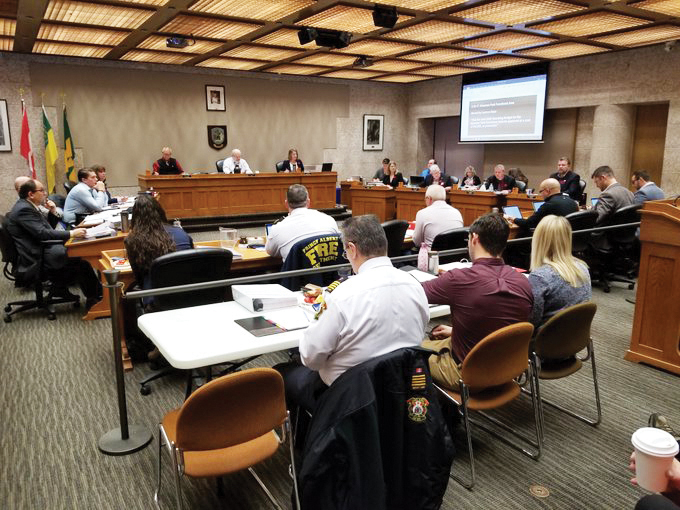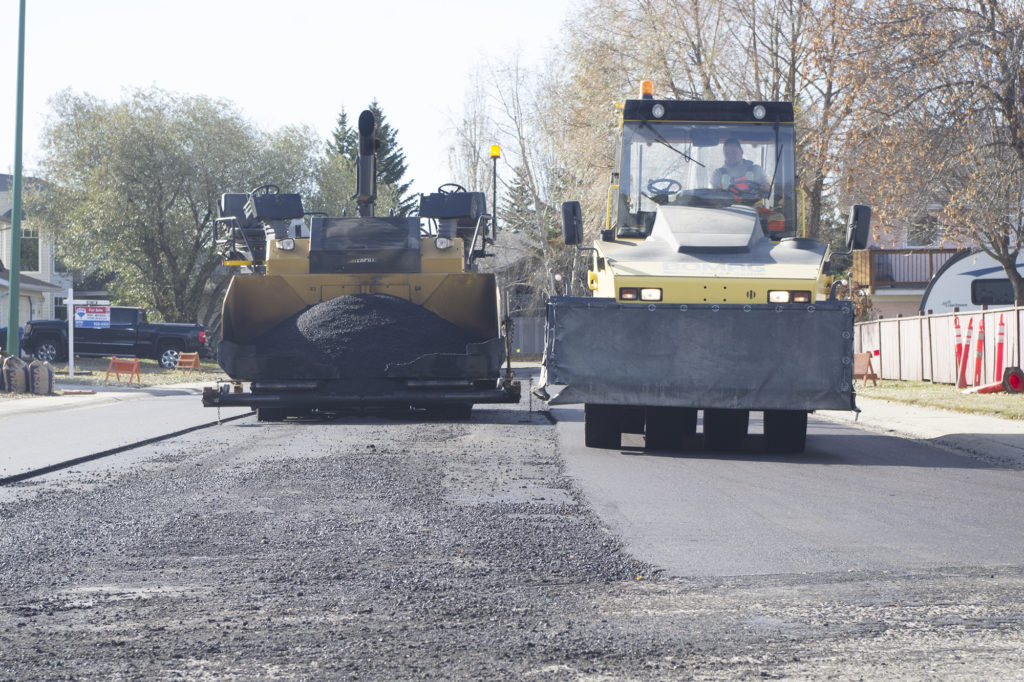
After two days of deliberations, Prince Albert City Council settled on a 2.9 per cent tax increase for 2020, a change that works out to an extra $63.83 in annual taxes on an average property assessed at around $350,000.
Council needed to dip into two different reserve funds to reach that number, something most of the city’s elected officials had no problem doing.
“The one thing I hear from taxpayers all the time is it’s still their money,” Mayor Greg Dionne said after the meeting. “That reserve was built on taxpayer money, so what we’re doing is just giving it back and helping them out today.”
Residents were looking at a 3.9 per cent increase at the end of the day before council pulled $247,390 from the Savings Emergency Reserve. They then cut transfers to the Future Infrastructure Reserve by around $67,000, bringing the tax increase down to 2.9 per cent.
The move completely emptied out the Savings Emergency Reserve, which was created in 2011 and hasn’t been touched since. That’s despite the city experiencing a water shortage in 2016, and hosting more than 5,000 wildfire evacuees in 2015.
Dionne said he wouldn’t support taking from reserves that had a clear purpose, like infrastructure spending, landscaping or equipment purchases, but believes things weren’t as clear-cut for the Savings Emergency Reserve.
He also said the reserve level wasn’t high enough to make a difference when trouble hit, and council wasn’t willing to take time to build it up.
“With the amounts of money that we needed, we didn’t even go look because we knew we didn’t have that in the reserve,” Dionne said when asked why the fund wasn’t touched in 2015 or 2016. “I didn’t even know we had it in 2016, because you need millions when you get a crisis, and when they say a crisis, $250,000 won’t help us.”
The General Fund Budget passed by a 7-2 vote on Thursday, with Couns. Terra Lennox-Zepp and Dennis Nowoselsky voting against it. The Saturday edition of the Daily Herald will have additional budget coverage.
Council goes big on infrastructure, stays put on staffing levels

Council had to make several cuts to get down to 2.9 per cent, but major infrastructure projects, like the $4.2 million Roadways Recapping Program, remained untouched. Public Works Director Wes Hicks said they used every penny they could get in 2019, and he expects that to be the case in 2020.
Council also formally approved the $550,000 Pedestrian Bridge Replacement Program, which passed after a lengthy debate over whether to pay for it with reserves or proceeds from the Federal Gas Tax.
“It’s still a positive because we didn’t cut any of those services,” he said. “People don’t want us to. They want to see the roads fixed. They want to see the sidewalks (repaired).”
A few infrastructure projects were even added to the list, such as the $30,000 proposal to widen Gary Anderson Way. Dionne said that project will help improve traffic flow during high-attendance events at the Art Hauser Centre.
Instead, most of the financial belt-tightening centred on staffing levels. Council rejected two major proposals for a few new permanent administration positions: a financial asset analyst to work on the city’s Capital Asset Management Plan, and a second traffic light maintenance position. The financial analyst would have earned $76,510 in 2020, but that number would later jump to around $100,000. The traffic light technician would have also earned around $100,000.
“At the end of the day, we could use more staff, but people don’t understand that staff is expensive,” Dionne said. “When you hire a person, that cost goes on forever.”
When asked, Financial Services Director Cheryl Tkachuk told council she had “serious concerns about the position being removed.” The department already didn’t have enough staff to work on the Capital Asset Management Plan, she explained, and hiring a consultant would be even more expensive than a full-time city employee.
Capital Asset Management Plans are required to receive grant funding from the provincial and federal governments.
“When you upgrade your staff, you pay them this year, you pay them next year and next year and it just keeps compounding,” Dionne said. “We have to be frugal and look at it.”
Public Works Director Wes Hicks was equally adamant that the traffic light technician was a necessary position. The city only has one tech and an electrician assistant to cover Prince Albert’s 62 traffic lights. Hicks said that’s hindering the city’s ability to provide timely service, and costing them in hundreds of hours of overtime pay.
However, Dionne said the decision to remove traffic lights from five Prince Albert intersections was a popular one. Instead of hiring more employees, they’ll remove more traffic lights in the near future.
“We’re going to go through the list now and remove more, because that’s one thing I heard loud and clear: quit slowing us up,” Dionne said.
Final budget approval scheduled for December
The first phase of budget deliberations are over, but there’s still a long way to go before the end. Council will meet again on Thursday, Nov. 21 and Monday, Nov. 25 for the sanitation, utility, airport and land funds budget review. Dionne said he expects a lot of interest in those meetings because he’s heard more complaints about utility rates than property taxes.
The final budget document will come before council for a final vote on December 9. City council will finalize the tax tools in the New Year.
Dionne added that he plans to lobby the provincial government for more funding as the 2020 election gets closer. If the city receives extra funds, Dionne says they’ll use them to lower that 2.9 per cent tax rate again.
“It’s an election year so cross your fingers,” he said. “There’s a good chance we might get more money out of the provincial government in March. You never know. Things happen in an election year. If we get a bigger transfer from the provinces, then that (tax rate) is going to come down a whole lot more.”

